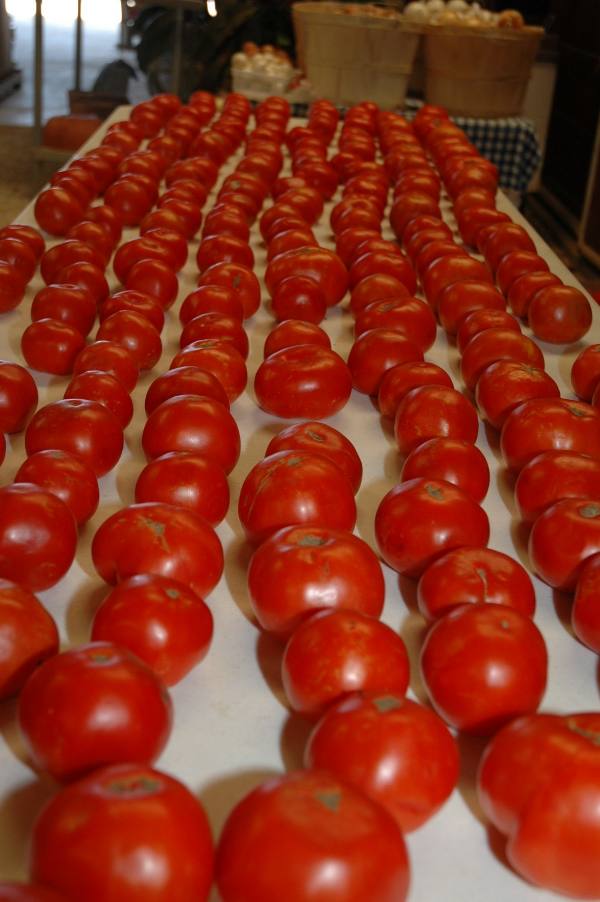
Every niche of agriculture is aware they may be juggling for position when it comes to securing support for farm legislation friendly to their cause.The Specialty Crop Caucus, a committee of lawmakers charged with protecting the interests of the specialty crops, is expanding its size from 17 to 27 members.Specialty crop producers are ineligible for federal commodity price and income support programs.

With budgets, taxes and federal spending still the hottest issue in Washington, farm groups and agriculture supporters are concerned that if and when Congress seriously gets down to business on new farm legislation later this year, there may not be enough funding to go around.
With a new summer target date for possible debate on just such a bill, agricultural interests across the nation are vying for more attention and focus on their segments of the industry. From Capitol Hill lobbyists to friendly farm product advocates, every niche of agriculture is aware they may be juggling for position when it comes to securing support for farm legislation friendly to their cause.
The U.S. fruit, tree nut, flower and nursery industries, groups that in the past were often overlooked and rarely understood, are applauding some unexpected legislative committee help this year with the announcement that the Specialty Crop Caucus, a committee of lawmakers charged with protecting the interests of this agriculture segment, is expanding its size from 17 to 27 members.
Last week, co-chairs Rep. Doc Hastings (R-WA) and Rep. Jim Costa (D-CA) announced the reorganization of the group that is charged with the education of other members on the issues that specialty crop growers and processors face and to advocate for legislation to help their cause.
“In my home state of California, we produce half the nation’s fruits and vegetables and protecting the industry is critical to the economy of my district. The men and women who grow our specialty crops provide nutritious options for our nation’s families and create thousands of jobs across the country. Building a healthier nation starts with our dinner tables, and these are the healthiest, safest foods in the world,” said Costa after the announcement was made.
Hastings says agriculture has been the backbone of Central Washington’s way of life for generations and provides more jobs than any other industry in his state.
“Our region’s specialty crop growers provide top-quality produce to consumers in the United States and around the world, and I am pleased that the Specialty Crop Caucus will provide a way to promote policies that help these growers continue to succeed,” he said.
No price supports, no income support
U.S. farmers grow more than 350 types of fruit, vegetable, tree nut, flower, nursery, and other horticultural crops in addition to the major bulk commodity crops. Specialty crop producers are ineligible for federal commodity price and income support programs. Unlike federal support for commodity crops, support for specialty crops spans a wide range of other existing USDA programs. These include marketing and promotion programs, crop insurance and disaster assistance, plant pest and disease protections, trade assistance, and research and extension services, among other support.
Despite this wide range of program support, overall program spending on all specialty crops remains a small fraction of that spent on all commodity crops, even when considering both mandatory and discretionary funding.
Some of the programs supporting specialty crops are longstanding farm support programs that benefit all agricultural producers and are regularly contained within omnibus farm legislation. However, several programs addressing specialty crops specifically were established following the enactment of the Specialty Crops Competitiveness Act of 2004 (P.L. 108-465), which was enacted outside a farm bill year. Many of the programs in the 2004 act were further expanded and reauthorized in the 2008 farm bill.
But officials representing the specialty crop industry say in order to keep their operations above water, they require a stronger voice in Congress and some guarantees that program spending cuts that could devastate the industry in the years ahead aren’t enacted. Expansion of the Specialty Crop Caucus, they hope, will help to keep focus on the issues and challenges the industry faces this decade.
Members of the Specialty Crop Caucus for the 113th Congress include:
Doc Hastings, WA-04
Jim Costa, CA-16
Mike Michaud, ME-02
Reid Ribble, WI-08
Colleen Hanabusa, HI-01
Jerry McNerney, CA-11
Mike Simpson, ID-02
Greg Walden, OR-02
Mike Thompson, CA-01
Bill Owens, NY-23
Earl Blumenauer, OR-03
Jeff Denham, CA-19
Kurt Schrader, OR-05
Robert Aderholt, AL-04
Mike McIntyre, NC-07
Julia Brownley, CA-26
Cathy McMorris Rodgers, WA-05
Vern Buchanan, FL-16
Tom Rooney, FL-17
Dan Benishek, MI-01
Richard Hanna, NY-22
Brian Higgins, NY-27
Paul Gosar, AZ-04
Juan Vargas, CA-51
Zoe Lofgren, CA-19
Suzanne Bonamici, OR-01
Jim McGovern, MA-02
Idaho Congressman Mike Simpson will also serve on the Specialty Crop Caucus, but will continue to be co-chairman of the House Sugar Caucus as well.
If you are enjoying reading this article, please check out our daily newsletter.
"American farmers grow high quality, safe fruits and vegetables that are enjoyed both domestically and worldwide," Simpson said. "Our specialty crop growers face challenges similar to other agriculture sectors, such as business trade and labor policies. It is important to form ag caucuses in order to share information, develop policy strategies for efforts impacting specialty crops, and coordinate our efforts to represent our constituencies."
Barry Bedwell, President of the California Grape & Tree Fruit League, is also a 113th Congress Caucus member.
“With approximately one half of the value of all crops grown in the U.S., specialty crops represent not only a very positive impact on jobs and the economy but also a focus on eating more fruits, nuts and vegetables that will fight obesity and lead to a healthier society,” Bedwell said after the appointments were announced.
None of the 27-member caucus is from the U.S. Southwest.
About the Author(s)
You May Also Like



